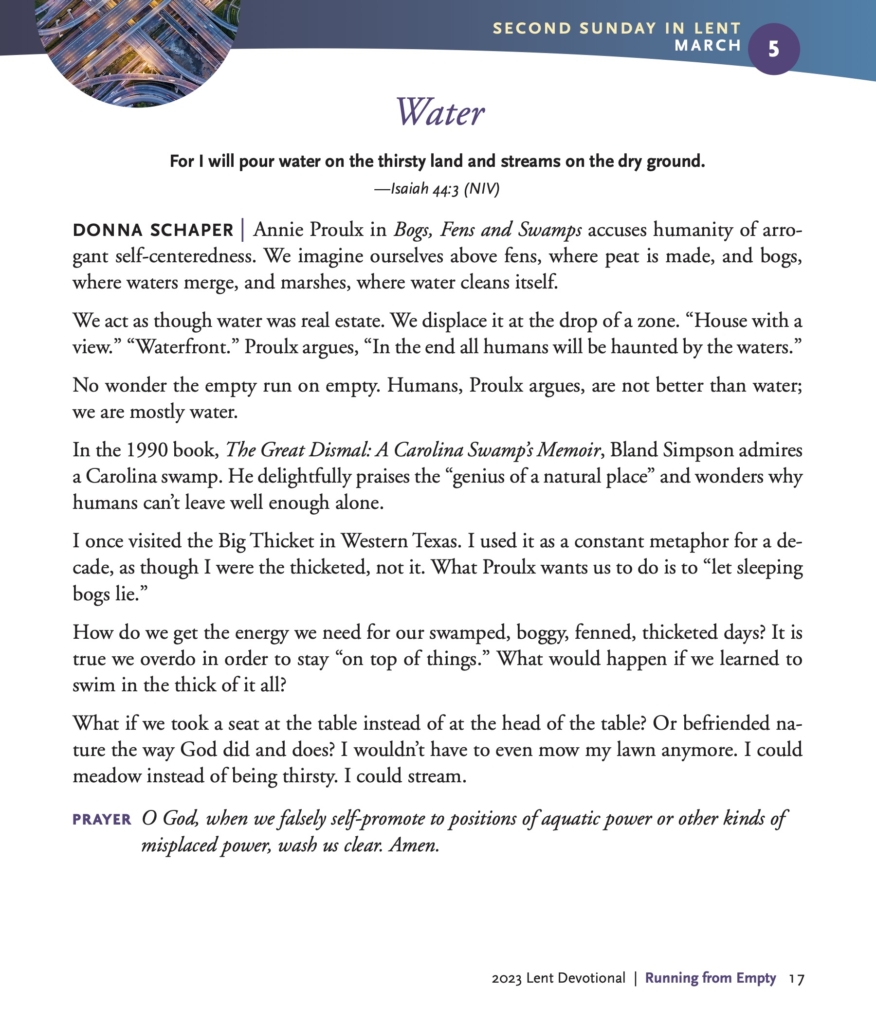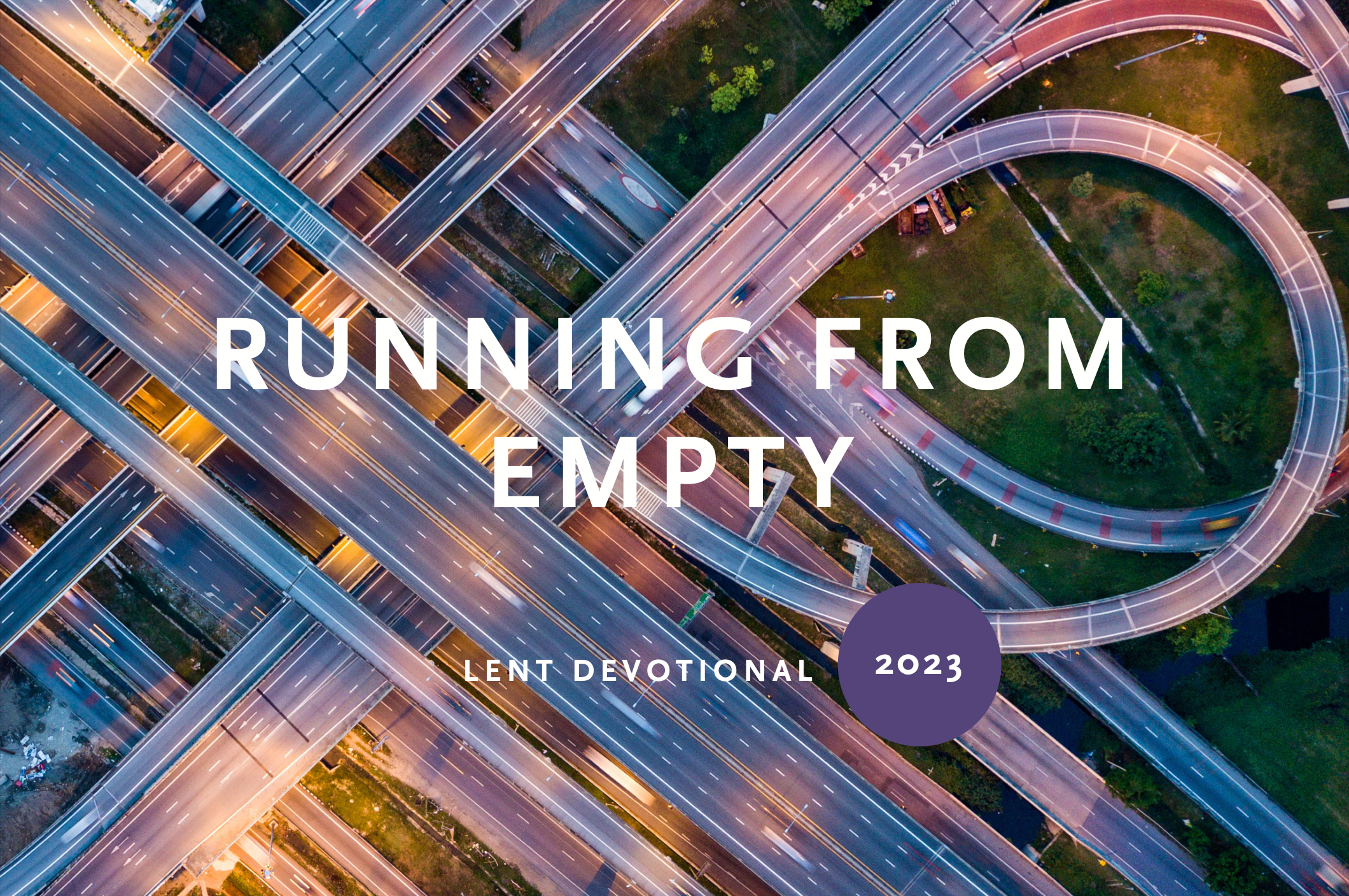
About the Writer:
DONNA SCHAPER works nationally for Bricks and Mortals, a NYC-based organization that provides sustainable solutions for sacred sites. Her most recent book is Remove the Pews.
Source: “Running from Empty” | 2023 Lent Devotional by the Stillspeaking Writers’ Group, made up of United Church of Christ ministers and writers who collaborate on resources for people in the church, outside the church, and not sure about the church.






